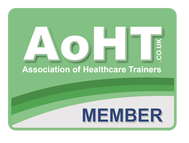|
Expedition Medicine – why?
Standard medical care is based around a functional Ambulance service and ready access to General Practitioners and Hospitals. What if that is no longer the case either through remote foreign travel, disaster, crisis? And why bother if you are not a doctor or paramedic, you may think that its beyond your knowledge and skill A. Medical Care after major disaster or prolonged catastrophe. There is a sense when thinking about survival or disaster medicine practice that everything is overwhelming, that it is impossible for lay people to provide a high level of medical care and maintain a high level of population health. We do not believe this is the case at all. Consider the following: 1. Remote Medicine practice: Below are the results of one author’s experience in the provision of health care in various remote and austere locations (some third world, some first world) to several thousand people over a cumulative 10 years. The Top 20 presentations (representing > 95% of consultations): 1. Minor musculoskeletal injuries (ankle sprains most common) 2. Upper respiratory tract infections 3. Allergic reactions/Hay fever/Anaphylactic reactions/Rashes 4. Minor open wounds 5. Gastroenteritis/Vomiting/Diarrhoea 6. Sexual health/Contraceptive problems 7. Skin infections/Cellulites 8. Mental health problems 9. Dental problems 10. Abdominal pain (2 confirmed acute appendix + 1 gangrenous gall bladder; no cause found. Renal or biliary colic were most common) 11. Flu/Viral illness 12. Chest infections 13. Major musculoskeletal injuries (fractures/dislocations) 14. Asthma 15. Ear infections 16. Urinary tract infections 17. Chest pain 18. Syncope/Collapse/Faints 19. Early pregnancy problems 20. Burns Top 12 prescribed drugs (representing >90% of medications prescribed): 1. Paracetamol (Acetaminophen) 2. Loratadine (and other assorted antihistamines) 3. Diclofenac (and other assorted anti-inflammatory) 4. Combined oral contraceptive 5. Flucloxacillin 6. Throat lozenges 7. Augmentin 8. Loperamide 9. Nystatin (and other antifungal) 10. Hydrocortisone cream 11. Ventolin inhalers 12. Morphine or other strong Analgesia What is of note here is that the vast majority of problems dealt with are simple and straight forward – there is still potential for serious consequences but there is scope for a well-informed lay person with a some training and access to a reasonable collection of reference books to provide reasonable care. Equally the vast majority of medication prescribed are from a very narrow well-defined list – despite the fact 1000’s of drugs that are on the market – the list of core lifesaving or comfort preserving ones is relatively brief. If you want to know more why not check out our expedition medicine courses which provides the necessary training and access to prescription medicines for remote travel.
1 Comment
|
AuthorThe author is a Registered Nurse who served with the RAMC, a Paramedic and Clinical Tutor with additional qualifications in Trauma and Remote Medicine. He has had a long term interest in remote medicine and is the Medical Advisor for several groups and runs courses in Outdoor First Aid, Expedition, Remote and Survival Medicine. ArchivesCategories |
- Home
- Upcoming Courses
-
All Courses
- Outdoor First Aid
- Advanced Outdoor First Aid
- Paediatric First Aid Course
- Emergency First Aid at Work (EFAW+F) forestry
- ITC Level 3 Award in Outdoor First Aid
- Immediate Life Support (ILS)
- Expedition Medic
- Remote medical emergencies
- Award in Education and training
- First Person On Scene/Responder Courses
- CPR/BLS For Healthcare professionals
- Pet First Aid
- Mental Health in the Workplace
- Advanced First Aid Courses
- Standard First Aid Courses
- Short First Aid Courses
- Forestry and Outdoor First Aid
- Health and Safety Courses
- Introduction to Infection Control
- Online Dog and Pet Care Courses
- Contact
- Gallery
- Activities
- Products
- Resources
- Online Courses
- Recommended Reading
- Survival Medic Blog
- QUZZES
- Tactical Medical Equipment
- Expedtion Medic Refreshers
- Minor Injury Online
- Expedition Medic Weekend
Location |
|
 RSS Feed
RSS Feed

